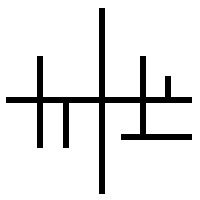Academically it’s not considered trustworthy because “anyone can make edits to it”.
Functionally, it’s one of the best sources of information there is, period.
It’s not perfect - malicious actors can indeed make fraudulent entries; but I’ve only seen a real example of that once, and it was corrected super fast.
If ever in doubt, every page lists its sources, so you can always get your info directly from those… and back to academics: while it’s generally taboo to cite Wikipedia directly, you can cite the same pages Wikipedia does as an easy work around.
while it’s generally taboo to cite Wikipedia directly, you can cite the same pages Wikipedia does as an easy work around.
Yup! Back in my college days, my English professor said we could use Wikipedia, but we had to trace sources all the way back to their origin, preferably a physical publication if possible. Meaning if Wikipedia cited a source that cited another source, you had to cite that source. That’s just how academia works!
Sorry that’s not how academia works. Your prof may have given you that proviso but that’s not standard operating procedure for scientific study. Think about it, then we’d all be citing the same 10 papers forever.
I remember when I was doing a paper on Al Capone in elementary school and I was using Wikipedia. In the part about his youth there was this gem: “Like every teenager he liked to jerk off.” Gave me a chuckle. Also, removing it was my first and only contribution to Wikipedia.
My favorite example of fake entries was the guy who just made Missouri slightly bigger on its page every time he got drunk
I don’t know. I’ve never heard that.
Explain.
Wikipedia is extremely functional and convenient, but there are instances where it can be inaccurate. I wouldn’t recommend it for accademic research, better stick to first hand information, like books from researchers and historians. But for casual learning of words and concepts, there’s no harm in using it.
Hope to be helpful.
I made this post because on Wikipedia, especially the Indonesian version, most of the articles don’t have references. See also: Reliability of Wikipedia
The biggest example of Wikipedia’s lack of trustworthiness I can think of off of the top of my head is the Scots language Wikipedia being mostly poorly translated entries for a good while.
@leonardrua (1/n) it’s not like that. U can trust Wikipedia. But if it is something really important then u should check the references it gives from research papers or some articles (which might be questioned or proved biased) so this is only the question of "Can you what ur given? Maybe something related to science… but not any political, religious or historical topics…
Because people are becoming increasingly polarized, and more strongly hold on to their views with very little to no chance to consider they’re wrong or are being lied to. Half of wikipedia is written by “them”, and we cant’t be sure if the other half is “ours” or is some corpo shill. Ours is the post-truth century, and Wikipedia the carefuly curated repository of human knowledge no longer fits us.
You know you can go through the logs and see all the changes made to a wiki article and they list all of their sources so you can check for yourself, right?
Right!
For reasons I describe here.
@leonardrua (n/n) You have to research yourself with primary sources. Cus historical bias of universal knowledge base by economists, religious leaders, politicians, historians and even archeologists have destroyed universal views of great civilization and have glorified even the worst historical events and civilizations).










